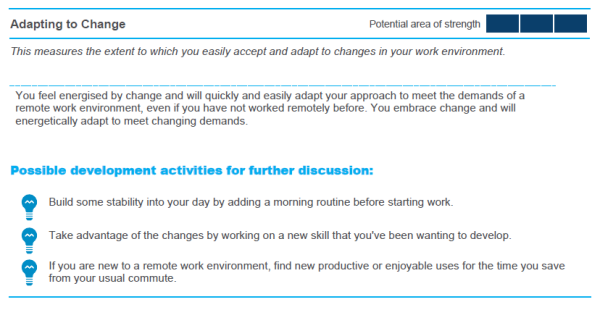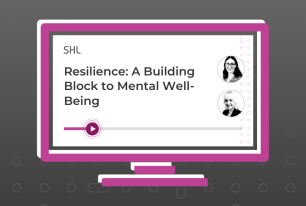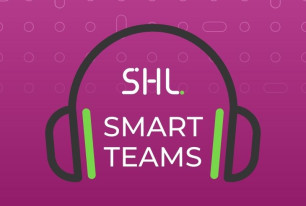3 Grounding Principles to Humanize Your Remote Working Experience
Principles to ease the mental and emotional burden of the quick adjustments many of us made as we shifted to virtual working.
Share
“To Grow Yourself, You Must Know Yourself”- John C Maxwell“
I’m going to say it. Working virtually is hard.
And for SO many reasons.
- The Workaholics: Struggle to keep healthy boundaries and switch off from work. Closing the office door behind them helped to keep this in check.
- The Working Parents: Cherish their alternative adult identities at work. Being in the office offered relative safety from unplanned interruptions.
- The Young Professionals: Thrive on the buzz of working with like-minded others; learning from, creating alongside, and sparring with their colleagues.
- The Technophobes: Crave the straightforwardness of doing things in person. Of walking over and resolving problems together. Delivering virtual one-way requests was their last resort!
The list goes on and on…
In a world that’s gone virtual overnight, tempers fray and most people report that negative thoughts and feelings visit them more often, and can be harder to shake.Alongside the obvious stressors and strains, there is uncertainty in many things. And an explicit need to adapt quickly to cope. Anxiety is at an all-time high.
And it is no wonder. Humans are built for in-person social connection and our day is made colorful through 3D interactions, body language, and micro-expressions.
- Remote work doesn’t trigger empathy and deep connection, so humanizing this is tricky by definition
- If we don’t take steps to humanize our own perspectives, we risk succumbing to biases and prejudice and undermining the motivations, working relationships, and trust of others.
- When was the last time you had a chance to reflect on the hopes, dreams, and fears of all your co-workers?
- How are they really coping? What do they think about your latest work? Are they finding the same things that you are, hard? How do they get past these blockers?
Personally, I get energy from spontaneous interactions with colleagues as a source of ideas, problem-solving, and everyday innovation. But happenstance has now been replaced with allotted meetings.
Nevertheless, I’m holding up well thanks to asking these questions regularly and to these 3 grounding principles:
-
Know Yourself, Learn & ReflectKnow yourself:
Know yourself: Hold a mirror up to yourself. And while you’re at it, show that mirror to your colleagues.This virtual transformation happened fast, and yet remote working is here to stay for the long-term. So bring in the professionals and use SHL’s new RemoteWorkQ to access free self-insight (powered by 40 years of science and 10 mins of your time) to help you figure out how to get the most from yourself and when working with others.
I’ve asked my team to discuss their RemoteWorkQ results in team meetings, peer catch-ups, and manager 121s. And I’m excited to use the group level views to help me steer how I lead and support my people on an ongoing basis too.
My RemoteWorkQ reminds me that whilst I find it easier to adapt, others find this more challenging:
Learn: Working virtually can mean working in silos. Since going virtual, my team experiments with virtual break-out sessions, role plays, and group learn-along. We also run weekly product Q&As, skill workshops, and daily problem-solving collaboration forums. And our leadership team carves out more time to connect with our clients directly.
Reflect, reflect, reflect: I start my day by setting intentions and reaffirming what I’m grateful for. And to support this I use the science-based behavioral-change app – MoodKit — to help me work through bothersome thoughts during my working day. The app empowers you to reframe the natural, but unhelpful thinking patterns that can amplify your negative thoughts or feelings. -
Nudge Yourself into Positive Habits
Lunch: As a self-confessed workaholic, it’s been useful to carve out a diary marked, sacred lunch break every day. And it’s been wonderful to get creative in the kitchen with my partner as part of that routine. Taking in some spring sunshine as part of the break is always a bonus. And when the weather is grey, why not consider a 10-minute power nap? Research shows this makes us more productive.
Hide your digital devices: Like so many of us, it is tempting for me to ‘always be on’. You spot your laptop or work phone and that impulsive urge to check it takes over. But the more we trigger and give in to this habit, the more we reinforce this addictive behavior (in ourselves, and others).
During downtime, physically hide work devices from your line-of-sight. Disable notifications and move work-related apps to the back of your phone too. And if you catch yourself reaching for that digital hit, recognize and stop yourself before you get sucked back in… try journaling your thoughts if you cannot get work off your mind. This will help you lighten the load from your busy mind.
Have fun and be silly: The world can feel like it is falling apart, so minimizing our need to have fun is easy. But finding reasons to celebrate, lift each other up, be silly, get creative, and let off steam is vital for our psychological wellbeing. Sure, these things can be done outside of work, but prioritizing fun during work hours helps to drive creativity and imagination, and it also helps to foster a sense of togetherness, normalcy, and community.
Call it a day: Set deadlines and ask others to hold you accountable to when you should just LOG OFF! -
Explore Meditation
Before remote working, three barriers stopped me from building this new habit:
1. I didn’t fully understand the impact meditation has on the brain
2. I found the practice inaccessible (despite the apps!)
3. I didn’t make the time to experiment
To overcome these barriers, I:
- Fed my psychology-curious side by reading ‘Why Buddhism Is True’, which examines the inner workings of the modular brain, and the real-life experience of being human. This book has a great way of making you feel more ‘normal’ and developing increased empathy for the human condition.
- I diarized the talented @James Robson’s free live-streaming daily meditation practices. James’ approach is personal, relatable, and refreshing as he shares his own story and helps you to explore various kinds of mediation week-by-week. He also builds up your confidence by explaining the concepts behind the practices too.
Take care, be kind, and work well.









